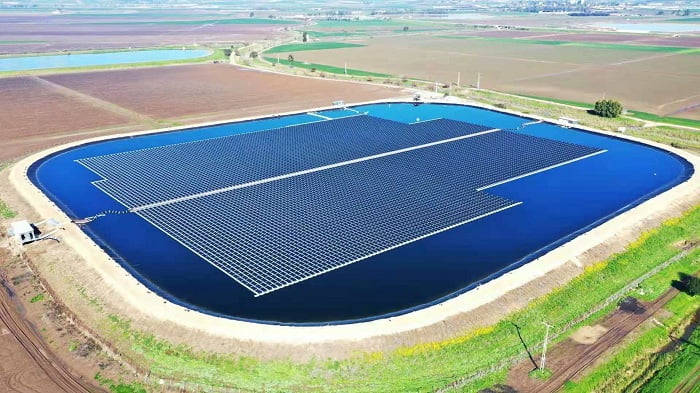With the completion of Israel’s Kfar Ruppin 7.1 MW floating power station, Sungrow FPV has provided the floating PV systems for more than 40 of Israel’s floating power stations, with a total installed capacity of nearly 150 MW, making the floating PV system provider the market leader in Israel.
With the completion of Israel’s Kfar Ruppin 7.1 MW floating power station, Sungrow FPV has provided the floating PV systems for more than 40 of Israel’s floating power stations, with a total installed capacity of nearly 150 MW, making the floating PV system provider the market leader in Israel.
The floating power stations will continue to generate clean electricity, helping Israel reach its goal of generating 30 percent of the country’s electricity from renewable energy sources by 2030. In addition, the floating PV power stations can effectively reduce water loss due to evaporation and protect Israel’s precious water resources.
In Israel, with its many deserts and where a lack of water resources is a constant concern, the protection of the country’s bodies of water has become an important consideration when constructing floating PV power facilities. As a result, Sungrow FPV has paid special attention to the mechanical and weathering properties as well as the particularly important environmental performance of the company’s products. Their equipment must meet both the safety standard for drinking water and the stringent requirements of Israel’s water management laws and regulations.
As most of the floating PV power stations are built on ponds or small reservoirs, it has become the Sungrow FPV’s priority to optimize the design of floating arrays while ensuring the safety of the anchoring system, in order to meet customers’ requirements for installed capacity while providing temporary anchoring solutions to cope with dry conditions. To avoid damaging the underwater environment and the underwater impermeable geomembrane, the team has customized the anchoring solutions for many projects, with flexible anchoring methods and without the need for large construction equipment, minimizing the impact on the bodies of water.
Over 40 floating PV power stations are expected to generate 230 million kWh of clean electricity annually, which will, to a great extent, address Israel’s local electricity demand, relieve the greenhouse gas emission and environmental pressure as a result of traditional energy structure, and deliver multiple benefits in terms of clean electricity, fish farming, environmental protection and water conservation.





































